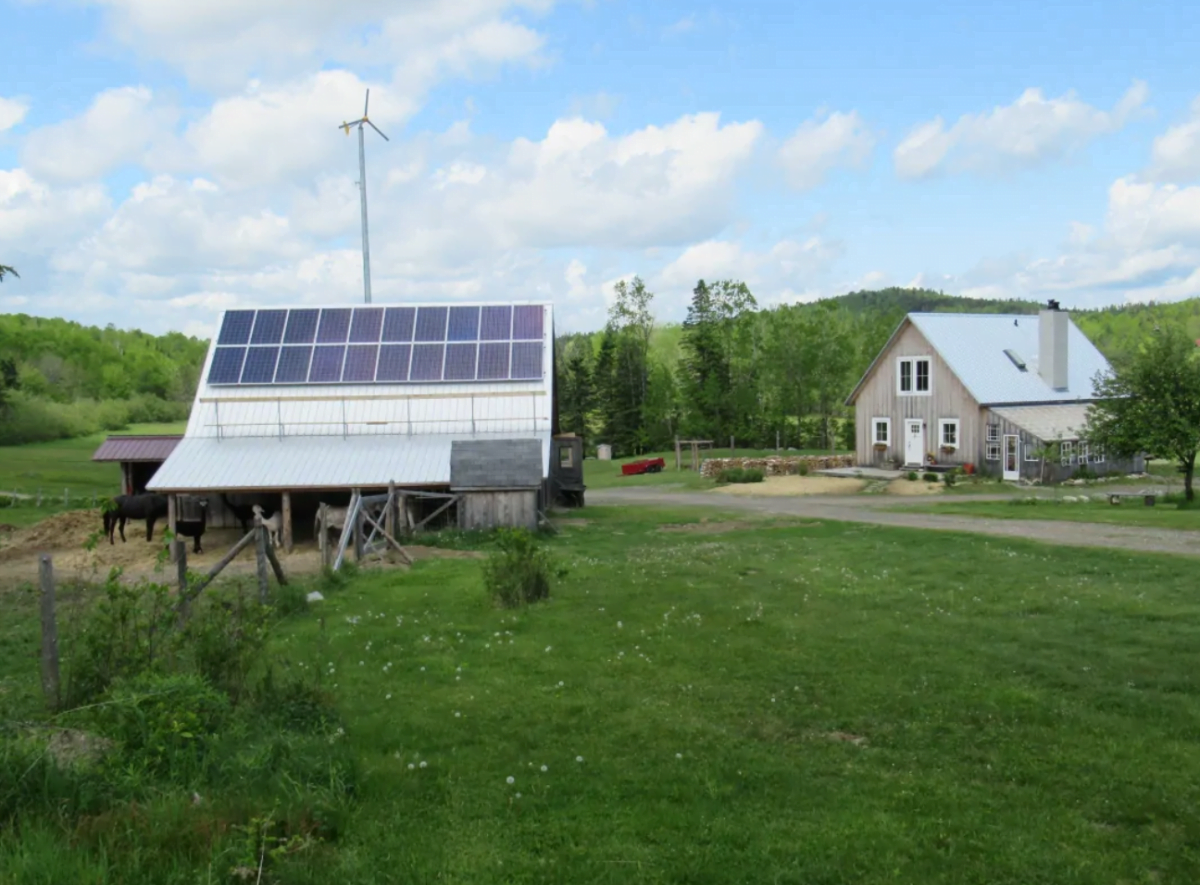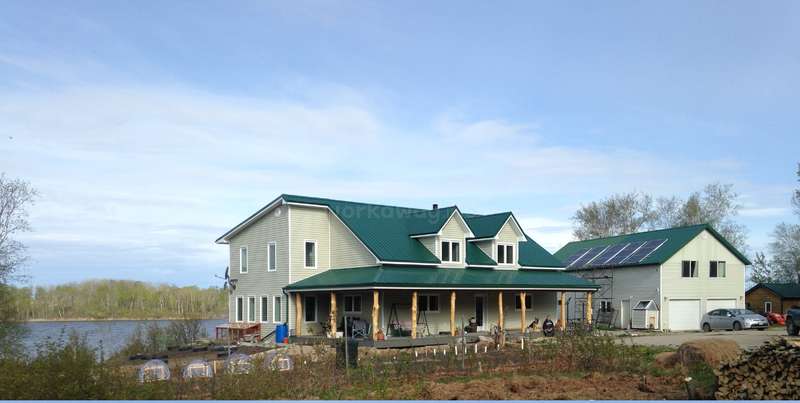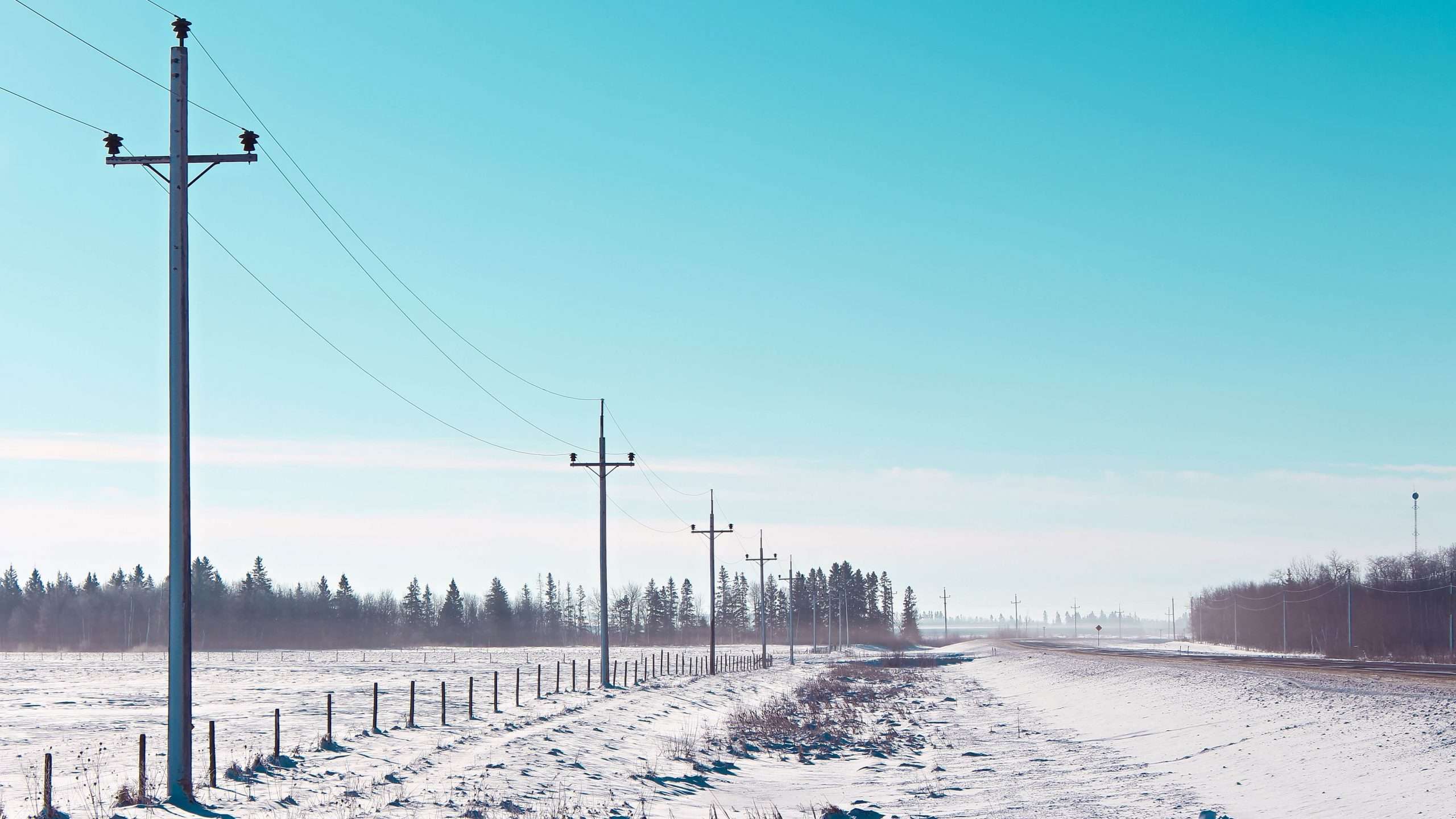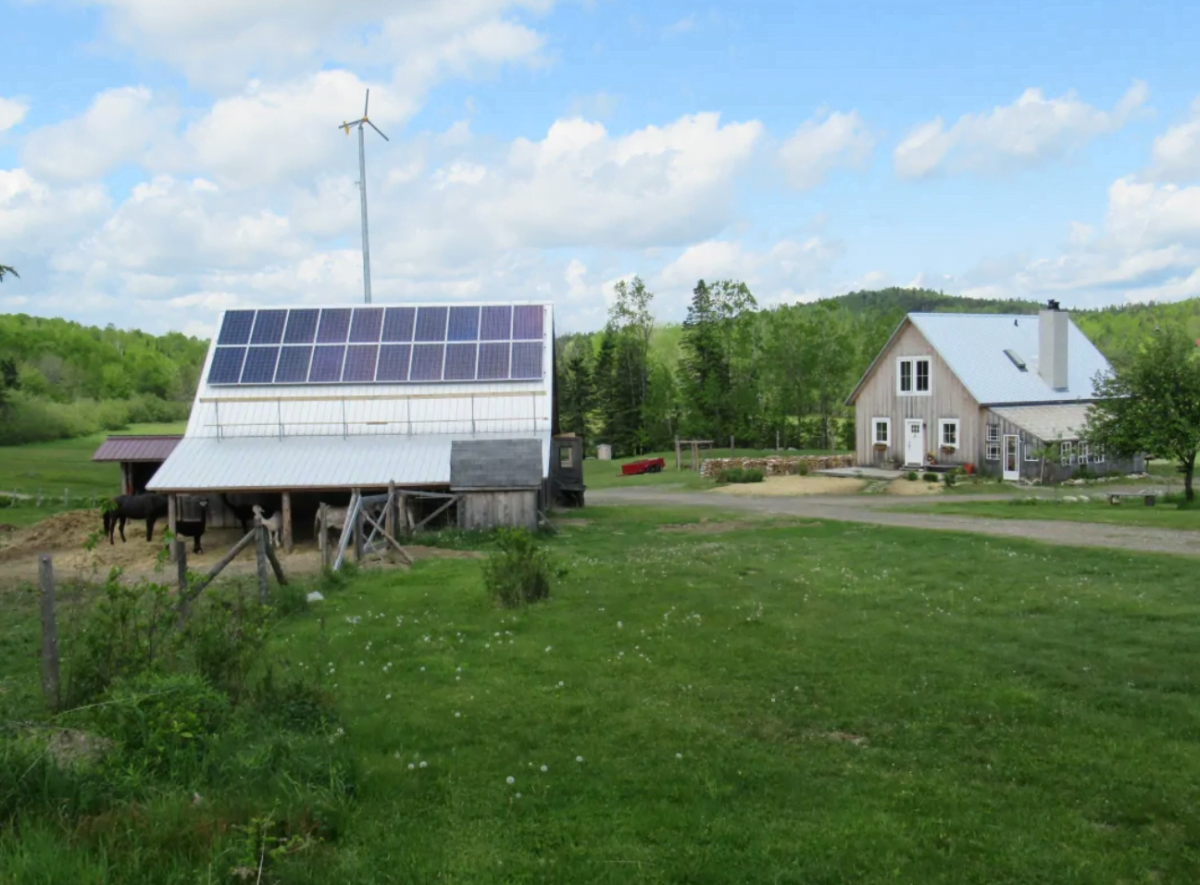Manitoba, located in the heart of Canada, offers an ideal setting for off-grid living. Its southern regions boast a mild climate and fertile soil, making it conducive to farming and self-sufficiency. With its vast array of lakes, including the famous Lake Winnipeg and Lake Manitoba, this province is a paradise for fishing enthusiasts. Additionally, Manitoba serves as a captivating canvas for the mesmerizing Aurora Borealis, especially in the less polluted northern parts. While polar bears can pose a threat in the north, some towns even suggest leaving car doors unlocked for safety. Manitoba presents ample opportunities to generate power off the grid, utilizing resources like solar and wind energy. However, it’s essential to acknowledge the potential dangers of off-grid living in the remote northern regions. Natural disasters such as floods, wildfires, and storms can also occur. Moreover, the cost of living off-grid can vary across the province, with higher expenses in the northern areas. Nevertheless, with its diverse economy encompassing industries like oil, gas, renewable energy, mining, agriculture, forestry, transport, and tourism, Manitoba offers a promising environment for those seeking a self-sustainable lifestyle.

Climate and Geography
Manitoba, located in the center of Canada, offers a favorable climate and geography for those interested in off-grid living. In the southern parts of the province, you can experience a mild climate, which is ideal for year-round living. The fertile soil in this region also provides ample opportunities for agriculture, allowing you to grow your own crops and sustain a self-sufficient lifestyle. Additionally, Manitoba is home to numerous lakes, including the famous Lake Winnipeg and Lake Manitoba, which offer abundant fishing opportunities for those who enjoy catching their own food. Furthermore, if you’re interested in witnessing the mesmerizing Aurora Borealis or Northern Lights, the northern parts of Manitoba have less light pollution, providing a perfect opportunity for such sightings.
Safety Considerations
When considering off-grid living in Manitoba, it’s important to be aware of the potential safety risks. In the northern parts, where the population is fewer and wildlife is more abundant, you may encounter polar bears. While these magnificent creatures may be beautiful to observe, they can also pose a threat to human safety. Therefore, it is crucial to take necessary precautions and stay vigilant while residing in these areas. Additionally, some towns may recommend leaving car doors unlocked in order to provide an easy escape route, should you encounter a dangerous situation. However, it is important to weigh the potential risks against personal safety preferences before deciding on this option. Lastly, living off-grid in the northern parts of Manitoba can come with its own set of dangers, including the challenges of off-grid living itself. It is essential to be well-prepared and knowledgeable about the potential dangers that may arise and take adequate precautions to mitigate them.

Off-Grid Power Generation
One of the key aspects of off-grid living is the ability to generate power independently. Fortunately, Manitoba offers several opportunities for off-grid power generation. Solar energy is a viable option due to the province’s high solar radiation, particularly in the southern parts. With a well-planned solar power system, you can harness the energy of the sun to meet your electricity needs. Additionally, Manitoba experiences high average wind speeds, making wind energy another attractive option for off-grid power generation. By installing wind turbines, you can harness the power of the wind and convert it into electricity. Furthermore, other off-grid power generation methods, such as hydropower or biomass, can also be explored depending on the location and resources available to you. It is essential to carefully assess the available options and choose the most suitable power generation method that aligns with your energy needs and resources.
Legality of Off-Grid Living
Living off-grid is legal in Manitoba, allowing individuals the freedom to pursue this lifestyle without legal restrictions. However, it is important to note that regulations may vary across provinces and municipalities in Canada. Therefore, if you’re considering off-grid living in a different province or municipality, it is essential to research and familiarize yourself with the specific regulations that may apply. Some areas may have certain requirements or restrictions on off-grid living, such as obtaining permits or adhering to specific building codes. Before embarking on your off-grid living journey, it is advisable to consult with local authorities or seek professional advice to ensure compliance with all legal requirements.

Natural Disasters
Manitoba, like any other region, is prone to natural disasters. It is important to be aware of the potential risks and plan accordingly when considering off-grid living in the province. Frequent floods are a common occurrence in Manitoba, particularly along the major rivers that traverse the region. These floods can cause significant damage to properties and pose risks to personal safety. Therefore, it is crucial to take precautions and implement effective flood mitigation strategies when constructing or choosing a location for your off-grid dwelling. Additionally, wildfires can also be a concern, especially during dry seasons. Being prepared with fire-resistant materials and having a fire safety plan in place is essential for protecting your off-grid property. Lastly, Manitoba experiences storms and severe weather conditions, including heavy snowfall, strong winds, and severe thunderstorms. Ensuring that your off-grid home is built to withstand these weather events is vital for your safety and security.
Cost of Living
The cost of living in Manitoba can vary depending on the region you choose for your off-grid lifestyle. The province offers regional variations in terms of the cost of living, with higher costs typically associated with the northern parts. This is primarily due to the remote locations and limited accessibility in these areas. Higher transportation costs, increased prices for goods and services, and limited availability of resources can contribute to the higher cost of living. If you opt for off-grid living in the northern parts, it is important to factor in these additional expenses when planning your budget. However, in the southern parts of Manitoba, the cost of living may be more affordable, thanks to better infrastructure and proximity to urban centers. It is crucial to carefully analyze your financial situation and resources to determine the most suitable location for your off-grid living adventure.
Diverse Economy
Manitoba boasts a diverse economy, which can offer numerous opportunities for off-grid living enthusiasts. The province’s economy is supported by industries such as oil and gas, renewable energy, mining, agriculture, forestry, transportation, and tourism. The oil and gas industry provides employment opportunities and contributes to the economic growth of Manitoba. Additionally, the renewable energy sector is growing rapidly, providing an opportunity for off-grid residents to contribute to sustainable energy production. Mining is another thriving industry in Manitoba, with significant deposits of minerals such as nickel, copper, and gold. This industry can offer employment opportunities and potential partnerships for those interested in off-grid living. Moreover, the province’s fertile soil and vast forests provide a solid foundation for agriculture and forestry, allowing off-grid dwellers to engage in sustainable practices and self-sufficient living. The transportation infrastructure in Manitoba, including highways and railways, supports the movement of goods and people throughout the province. Finally, the thriving tourism industry offers the potential for off-grid living enthusiasts to share their unique lifestyle and provide services to visitors interested in experiencing the off-grid way of life.
Off-Grid Living in Canada
Living off-grid is not only legal in Manitoba but also across Canada. The country recognizes the freedom and individual choice associated with off-grid living. While off-grid living may be more common in rural or remote areas, it is not restricted to these regions. Urban off-grid living is also gaining popularity, with individuals seeking alternative lifestyles within city limits. However, it is important to note that regulations surrounding off-grid living may vary depending on the province and municipality. It is advisable to research and familiarize yourself with the specific regulations that may apply to your chosen location, especially if you plan to live off-grid outside of Manitoba. By understanding the legal framework and complying with all relevant regulations, you can enjoy the benefits of off-grid living without any legal complications.

Factors Affecting Cost of Living Off-Grid
The cost of living off-grid in Canada, including in Manitoba, can be influenced by various factors. One of the crucial factors is location and land prices. The cost of land can vary significantly depending on the region and its desirability for off-grid living. Remote areas or regions with abundant resources may have higher land prices, while less desirable locations may offer more affordable options. It is essential to consider your budget and land preferences when selecting a location for your off-grid lifestyle. Additionally, sustainability systems and setup costs can also affect the overall cost of living off-grid. Establishing a self-sufficient system that meets your energy, water, and food needs requires an initial investment. The cost of implementing renewable energy systems, installing water collection and filtration systems, and setting up sustainable farming practices should be factored into your overall budget. Assessing these factors and carefully planning your off-grid setup can help ensure a sustainable and financially viable off-grid lifestyle.
In conclusion, Manitoba offers a favorable environment for off-grid living in Canada. With its mild climate, fertile soil, abundance of lakes, and opportunities to witness the Aurora Borealis, the province is an attractive destination for those seeking an independent lifestyle. However, it is important to consider safety considerations, such as the threat of polar bears and the challenges of off-grid living in the north. Off-grid power generation options, including solar and wind energy, provide opportunities for self-sufficiency. It is legal to live off-grid in Manitoba, but regulations may vary across Canada. Natural disasters like floods, wildfires, and storms should be considered when planning your off-grid setup. The cost of living depends on regional variations and factors like location, land prices, and sustainability systems. Manitoba’s diverse economy offers opportunities for various industries, including oil and gas, renewable energy, mining, agriculture, forestry, transportation, and tourism. Living off-grid is legal in Canada, allowing individuals the freedom to pursue a self-sufficient lifestyle, but compliance with regulations is essential. Understanding the factors that affect the cost of living off-grid can help you plan and budget effectively for your off-grid adventure in Canada.




